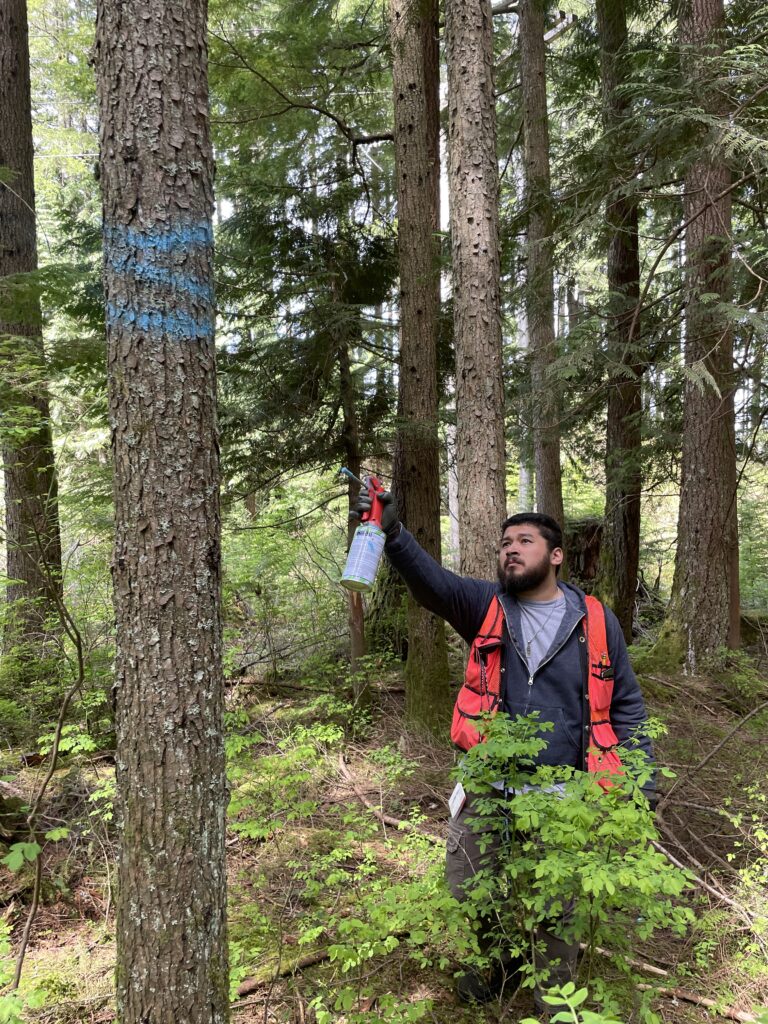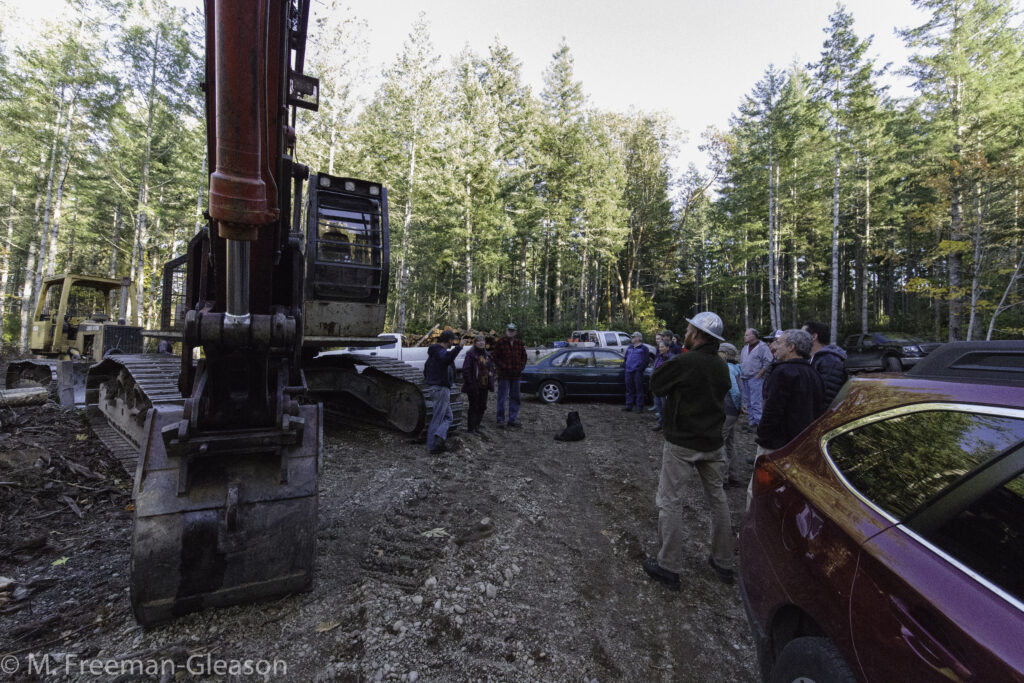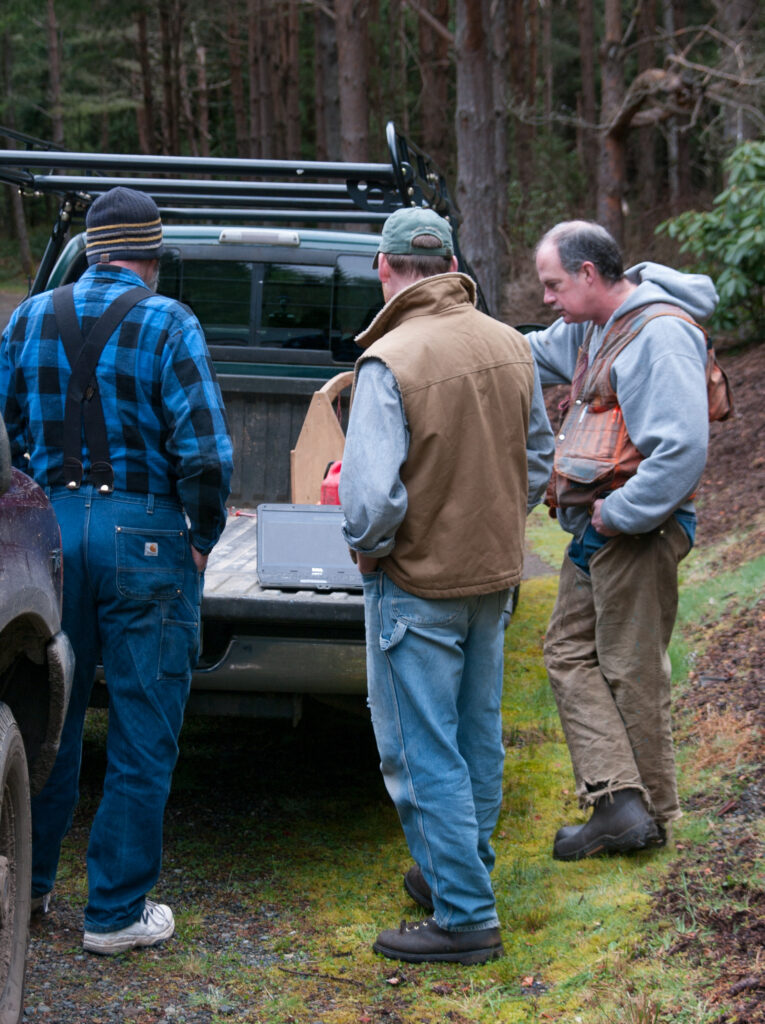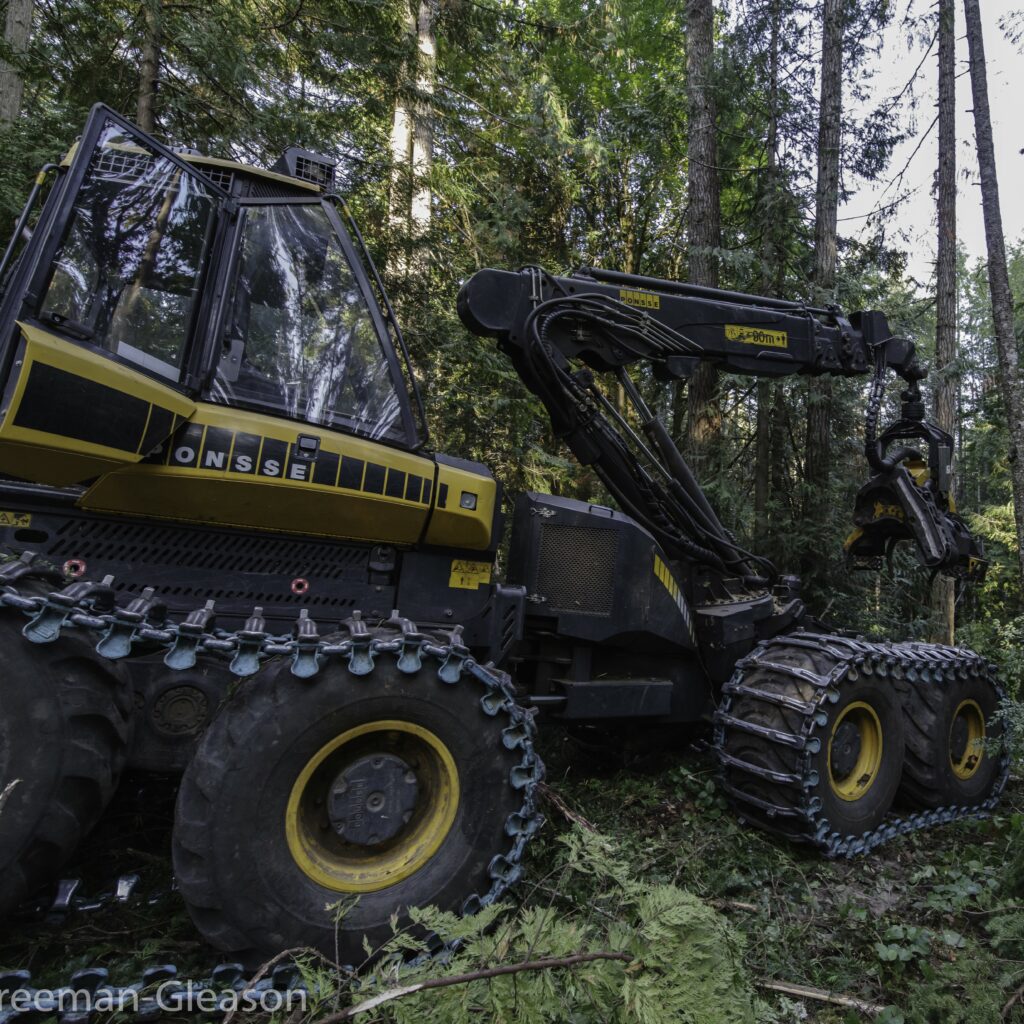Are you interested in an outdoor career
improving forest health?
Northwest Natural Resource Group (NNRG) is introducing a new training program for people interested in becoming loggers with a focus on ecological logging – thinning designed to improve the health of the stand and enhance carbon sequestration, among other ecosystem services.
This training will be open to students from a wide variety of backgrounds, and no prior logging or heavy equipment experience is required, though we do encourage those with some logging or heavy equipment background to apply. Successful graduates will have the opportunity to gain additional experience using NNRG’s harwarder (combination harvester/forwarder). There is no cost for students, and students will be paid a stipend for their time.
NNRG will have use of a simulator so that students can gain some familiarity with equipment operation before getting into the cab of a real machine. Students will get approximately 28 hours of hands-on experience operating a modern cut-to-length harvester and forwarder.
The first training will take place in Summer 2024, with exact dates to be determined. It will be four weeks long and full-time at ~40 hours/week. The first training site is expected to be within about 1.5 hours of Tacoma, WA. We expect to schedule more trainings in the future in other parts of Western Washington.
What is thinning, and why do you do it?
Many forests in our region are overstocked, and trees are stressed by this excess competition from their neighbors. Thinning “from below” removes the smaller and less healthy trees, in order to give the healthier trees more room to thrive.
It also can be used to enhance species and structural diversity, in order to create more valuable habitat for a wide variety of species, and increase the resilience of the forest ecosystem.
Program outline
Intro to Ecological Forestry
- Ecological vs. sustainable forestry
- Forest succession and development
- Tree and understory plant species ID
- Tree selection for forest health
- Ecological logging techniques
- Climate change impacts on forestry
- Forest Practices overview


Heavy Equipment Intro
- Types of logging equipment
- Mechanized logging procedures
- Logging safety
- Chainsaw felling
- Simulator harvester/forwarder training
- Observation of experienced operator
Logging as a Business
- Historical context and industry trends
- Starting a business
- Reducing liability
- Tracking revenue/expenses
- Optimizing value/scale
- Building client relationships
Frequently asked questions
Is there a cost for students?
No, there is no cost for students, and students will be paid a stipend for their time to help cover their living expenses.
What will the class schedule be?
This program will be full-time Monday-Friday for the four-week duration. As is typical with logging operations, some days will start very early and may be long.
Is there a minimum age for students?
Students must be at least 18 years old for liability reasons. We expect to hold these trainings for several years, so if you’re under 18 now you can check back and apply later.
Will instruction be available in languages other than English?
We can provide written materials in Spanish, and can offer some translation services. However, students must speak at least basic English in order to receive instruction from trainers while operating equipment.
Is transportation available?
No, students will have to make their own arrangements to arrive at the work area each day. Carpooling is encouraged, and we will assist in connecting people to set up carpools.
Do you offer employment after the course?
While we will recommend successful students to our network of loggers, and will be happy to provide references, we cannot guarantee employment.
After finishing this course will I be ready to start my own logging business?
This course will provide an overview of what it takes to run a logging business, and some experience in various machines, but most students will need to get more machine experience to be ready to operate them efficiently in a commercial setting. Graduates will be eligible to get more experience using NNRG’s harwarder (combination harvester/forwarder), or could obtain employment with a local logging contractor in order to gain more experience.
Will students have to meet certain benchmarks along the way to remain in the course?
Yes. Logging is difficult and technical work, and it’s not for everyone. While we’d love to have all students who start the course complete it, if the trainer (whose equipment students will be using) feels that a student is not progressing adequately, they will not be able to complete the hands-on portion of the program. In addition, students will be expected to uphold standards of conduct appropriate to the work environment, including punctuality and a constructive attitude, as a condition of remaining enrolled.
This program is funded through a grant from the USDA Partnerships for Climate-Smart Commodities.
This material is based upon work supported by the U.S. Department of Agriculture, under agreement number NR233A750004G042. Any opinions, findings, conclusions, or recommendations expressed in this publication are those of the author(s) and do not necessarily reflect the views of the U.S. Department of Agriculture. In addition, any reference to specific brands or types of products or services does not constitute or imply an endorsement by the U.S. Department of Agriculture for those products or services.
In accordance with Federal civil rights law and U.S. Department of Agriculture (USDA) civil rights regulations and policies, the USDA, its Agencies, offices, and employees, and institutions participating in or administering USDA programs are prohibited from discriminating based on race, color, national origin, religion, sex, gender identity (including gender expression), sexual orientation, disability, age, marital status, family/parental status, income derived from a public assistance program, political beliefs, or reprisal or retaliation for prior civil rights activity, in any program or activity conducted or funded by USDA (not all bases apply to all programs). Remedies and complaint filing deadlines vary by program or incident.
Persons with disabilities who require alternative means of communication for program information (e.g., Braille, large print, audiotape, American Sign Language, etc.) should contact the responsible Agency or USDA’s TARGET Center at (202) 720-2600 (voice and TTY) or contact USDA through the Federal Relay Service at (800) 877-8339. Additionally, program information may be made available in languages other than English.
To file a program discrimination complaint, complete the USDA Program Discrimination Complaint Form, AD-3027, found online at How to File a Program Discrimination Complaint and at any USDA office or write a letter addressed to USDA and provide in the letter all of the information requested in the form. To request a copy of the complaint form, call (866) 632-9992. Submit your completed form or letter to USDA by: (1) mail: U.S. Department of Agriculture, Office of the Assistant Secretary for Civil Rights, 1400 Independence Avenue, SW, Washington, D.C. 20250-9410; (2) fax: (202) 690-7442; or (3) email: program.intake@usda.gov.
USDA is an equal opportunity provider, employer, and lender.


